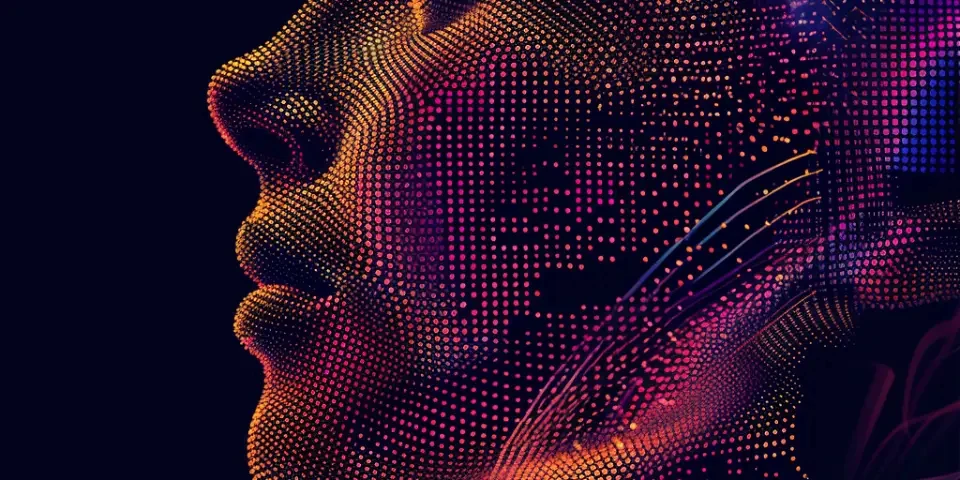In recent years, artificial intelligence (AI) has become a transformative force across various industries. From healthcare to finance and transportation to education, AI is revolutionizing the way we live and work. While some may have reservations or anxieties about its implications, it is essential to embrace the future of technology and harness its potential for the betterment of society.
1. Understanding Artificial Intelligence
Artificial Intelligence refers to the simulation of human intelligence in machines that are programmed to think and learn like humans. It encompasses various technologies such as machine learning, natural language processing, and computer vision. By leveraging vast amounts of data, AI systems are capable of analyzing patterns, making predictions, and performing complex tasks swiftly and accurately.

2. AI in Healthcare
One of the most promising applications of AI is in healthcare. AI-powered systems can assist in diagnosing diseases, predicting patient outcomes, and designing personalized treatment plans. With the ability to analyze vast amounts of medical data, AI can identify patterns and correlations that may not be apparent to human healthcare providers. This can lead to more accurate diagnoses and improved patient care.
In addition, AI-based robots can assist in surgeries, performing precise and delicate procedures with minimal invasiveness.
3. AI in Finance
The finance industry has also embraced AI to streamline operations, detect fraud, and enhance customer experiences. AI algorithms can analyze large volumes of financial data in real-time, enabling accurate predictions and risk assessments. By automating repetitive tasks, AI can free up human employees to focus on more complex and strategic roles.
4. AI in Transportation
Self-driving cars are a prominent example of AI revolutionizing transportation. Companies like Tesla and Waymo are using AI algorithms to enable vehicles to navigate autonomously, reducing accidents and improving efficiency. AI can also optimize traffic management systems, minimize congestion, and enhance public transportation networks.
5. AI in Education
In the realm of education, AI offers personalized learning experiences for students. Intelligent tutoring systems can adapt to individual students' needs and provide tailored feedback and guidance. AI can also assist educators in developing effective teaching strategies and identifying areas where students may struggle.
6. The Ethical Considerations
As AI becomes increasingly pervasive, several ethical considerations arise. It is crucial to ensure that AI systems are developed and used responsibly, ensuring fairness, transparency, and accountability. Policies and regulations should be in place to address potential biases, protect individuals' privacy, and mitigate the risks associated with AI.
7. The Future Workforce and AI
Concerns about job displacement due to AI are common. However, it is important to understand that AI will augment human capabilities rather than replace them entirely. While certain tasks may be automated, new job roles and occupations will emerge to support the development and implementation of AI technologies. Continuous learning and upskilling will be essential to thrive in the future workforce.
FAQs:
1. Can AI be creative?
While AI is excellent at analyzing patterns and generating solutions based on existing data, true creativity is still considered a unique human trait. AI can assist in the creative process by providing suggestions and augmenting human creativity, but it is yet to master the essence of originality and imagination.
2. How safe is AI?
AI systems are generally safe as long as they are developed and deployed with rigorous testing and quality control measures. However, vulnerabilities exist, and malicious actors can potentially exploit AI systems for nefarious purposes. Hence, it is crucial to establish robust cybersecurity measures and ensure the ethical use of AI technologies.
3. Will AI take over the world?
Contrary to science fiction depictions, AI is unlikely to take over the world in a malevolent manner. While AI has the potential to greatly impact society, it is ultimately a tool developed and controlled by humans. Responsible development and governance of AI can mitigate any negative outcomes and harness its potential for the betterment of humanity.
Conclusion
The AI revolution is here to stay, and it promises to reshape numerous industries and aspects of our lives. By understanding and embracing the potential of AI, we can navigate this revolution successfully, ensuring its responsible and ethical use. With proper regulation, collaboration, and upskilling, we can harness AI's power for the greater good.
References:
[1] Johnson, J., Khoshgoftaar, T. M. (2019). Survey on deep learning with class imbalance. Journal of Big Data, 6(1), 1-32.
[2] Yampolskiy, R. V. (2020). Classification-based AI safety failures are a problem for humanity. AI & Society, 35(1), 3-11.
[3] Russell, S. J., & Norvig, P. (2016). Artificial intelligence: a modern approach. Malaysia; Pearson Education Limited.
Experience companionship like never before with Wemate AI! Our innovative platform blends natural language processing and generative AI for interactions that feel meaningful. Customize your AI companion's voice, appearance, and scenarios to suit your preferences—jump into fun-filled experiences today!






